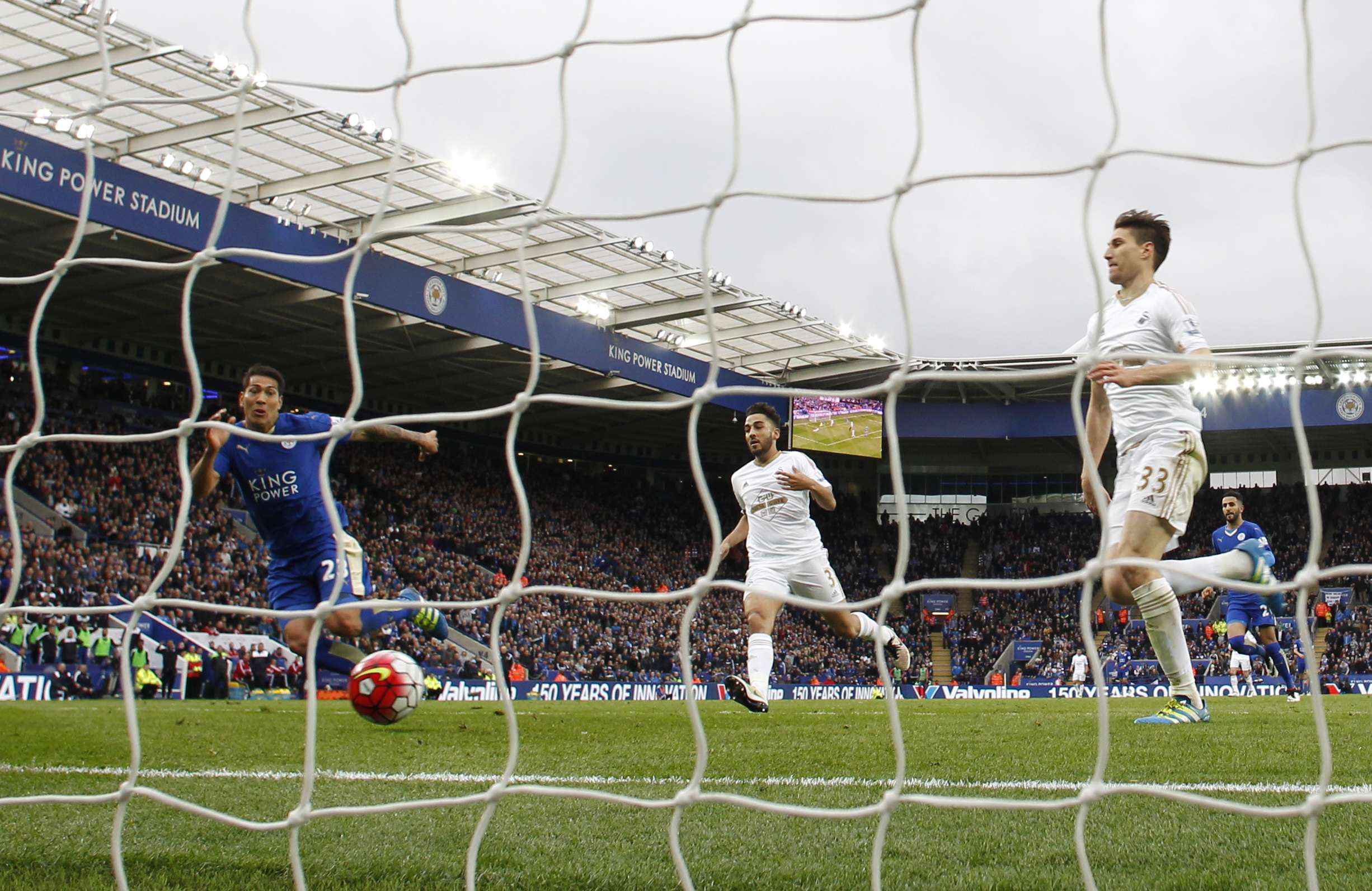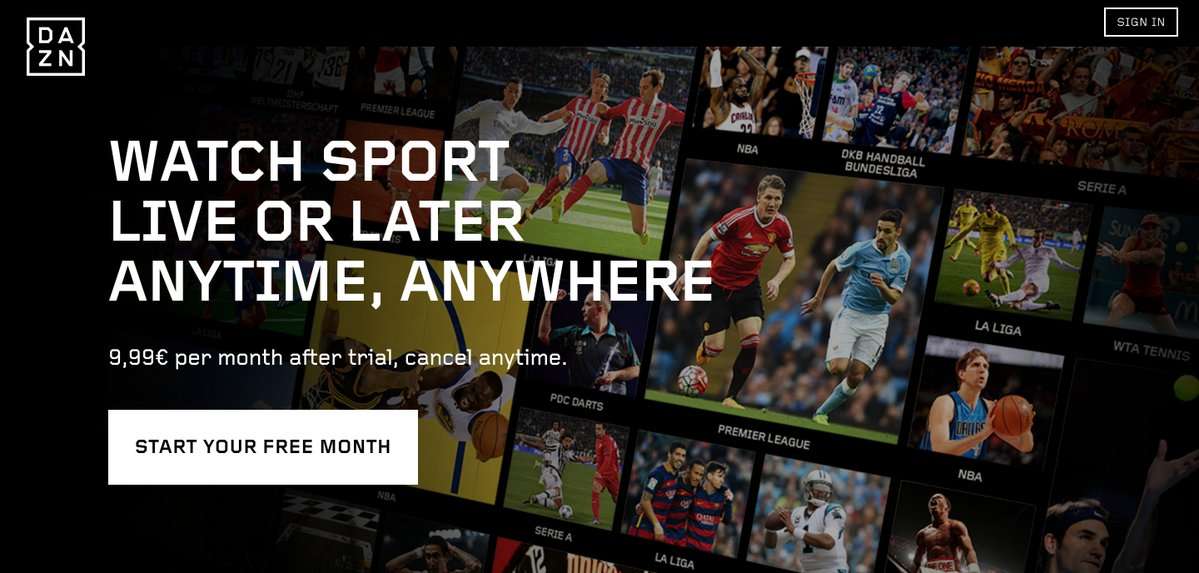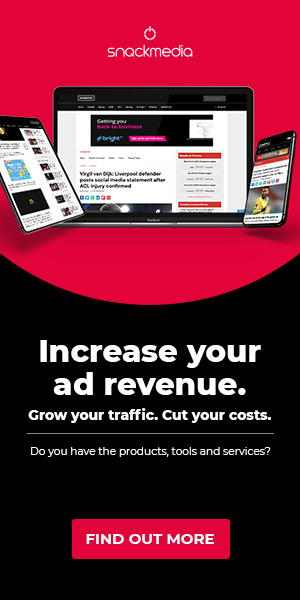The ‘Netflix of Sport’ is the game changer everyone has been waiting for
The sports industry is a huge money-spinner. From the grass-fed cash-cow that is the Premier League to almost any other sports league or team you can think of, someone will want to watch it live.
But it’s not always possible to watch it live. Huge TV rights deals that make the traditional broadcasters a giant, clunking mess when it comes to adapting to modern times and digital media. And there’s also the fact that some sporting events won’t justify broadcasting when you look at the viewers it’ll attract.
Lifting the roadblock created by the first problem is the key to solving the second one, it seems.
As of yesterday, however, a game-changing approach to the way live sport is consumed by the public was made available to viewers in Germany.
DAZN is essentially Netflix for live sport. For a subscription fee (€9.99 per month) those living in Germany can watch every football match across Europe’s top five leagues, as well as other sporting events of their own choosing.
“We won’t make the broadcasting choices for you,” said Simon Denyer, Chief Executive of Perform Group, the sports content provider behind the initiative. “As a subscriber you’ll have the freedom to set your own sporting agenda. We’re delivering something very different.”
They certainly are delivering something different. As the public grows more and more frustrated at having to buy hundreds of channels they don’t want in order to watch live sport, they’re essentially voting with their clicks by giving up bloated – not to mention expensive – TV subscriptions to stream their sport over the internet.
This is essentially the problem that was facing the entertainment and music industries a few years ago, and the success of Netflix, Spotify and other streaming services who offer content for a low price and don’t restrict you to broadcast schedules shows there’s a real market for this sort of venture.
DAZN is quite simply the future. The only reason that it hasn’t happened until now is the money that traditional broadcasters have spent buying the rights to sporting events.
But this throws open the windows to new and unexplored vistas. For example, if every viewer is watching – by necessity – on a device with an internet connection, that leaves the door open for advertisers to place interactive ads half time slots. Imagine the clicks as millions of hungry football fans see an interactive ad for pizza during a Premier League game. Imagine the pizza sold if every click landed them onto a page which allowed them to order at the touch of a button.
This isn’t just the game changer that sports fans have been crying out for, but it’s also the game changer that businesses and advertisers have been crying out for. Traditional broadcasters have missed a huge trick by not getting in on this action sooner. But then traditional broadcasters have missed every trick since the turn of the century.
The future of sports broadcasting has been born in Germany, and it’ll be coming to a connected TV near you very soon.
About author
You might also like
SPORTEL 2021: Day One Recap
This year’s prestigious SPORTEL convention kicked off in sunny Monaco today, welcoming a host of familiar faces as well as plenty of new ones. Doors opened at 8:30am with businesses
Six Founding Riders Set To Bring The Vision Of The UCI Track Champions League To Life
Olympic Champions, UCI World Champions and World Record holders join the new track cycling competition debuting in November 2021 The UCI Track Champions League is delighted to announce that six
Sports related spending to soar this summer as pre-pandemic life resumes
New insights from eBay Ads UK reveal the potential for brands to engage with an excited but nervous nation as sports events get back on track As pubs and indoor









